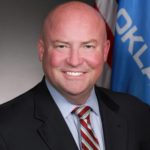By Oklahoma Institute for Child Advocacy CEO Joe Dorman
As we continue our examination of the massive federal legislation called the “Big Beautiful Bill” by proponents, it is important to look at the education portion of the bill. As you can see from the analysis below, the federal funding and policy changes will be a tremendous change in how Kindergarten through twelfth grade (K-12) classes and access to college courses are supported by federal dollars.
The bill would create an unprecedented $5 billion national school voucher program under K-12 called the Educational Choice for Children Act (ECCA). Families making up to 300% of area median income would be able to apply for and receive scholarships to use toward private school tuition, homeschooling books, or tutoring, for example. The money would be distributed by third-party scholarship granting organizations (SGOs) certified by the U.S. Treasury and IRS.
Donors to SGOs would reap the tax benefits from this system. Anyone would be able to donate to one of these SGOs like a charitable organization. The difference, instead of getting a deduction from your taxable income, donors will receive a dollar-for-dollar full tax credit for up to the greater of $5,000 or as much as 10% of one’s income. For example, $1,000 donated to an SGO would result in $1,000 deducted off one’s tax bill. This is an unprecedented dollar-for-dollar charitable donation tax credit at the federal level.
The changes are not limited to just young Americans in the education system. For America’s college students, the news is very concerning to many, especially community colleges. The bill proposes to:
- Raise the definition of “full-time” to 15 credits per semester to get full Pell (from the current 12 credits)
- Eliminate Stafford subsidized loans
- Eliminate graduate student PLUS loans and limits parent PLUS loans.
- Eliminate existing income-contingent repayment plans and create one new income-based repayment plan, increasing the percentage of discretionary income allowed and the number of payments needed before a loan can be forgiven.
This will place extreme hardships many, including those who choose to work while taking college courses. By current standards, only 36% of undergraduate Pell Grant recipients attempted 30 or more credits in one academic year, the newly proposed definition of full time.
This means that in the 2024-25 academic year, only about 2.5 million of the 6.9 million Pell Grant recipients nationwide would have qualified under the new definition. Further, about 1.4 million, or 20%, of Pell Grant recipients would lose their Pell Grant funding entirely due to the limitation on awards for less than half-time enrollment.
This would include 810,000, or about one-third, of the 2.5 million Pell Grant recipients who are currently enrolled at community colleges, according to Center for American Progress. For part-time adult students who work while attending school, this could have a devastating impact on enrollment numbers.
Most students who register in less than full time enrollment have jobs to help cover the rising cost of college and often have families to support. These programs currently provide an offset opportunity to complete courses more quickly, therefore allowing entry into the job market at a quicker pace. The low interest loans these students would lose under this bill will likely have a devastating impact on enrollment, depriving many of the chance for better lives and opportunities through higher education.
You can read my previous two columns at https://www.oica.org/weekly-columns which discuss changes to SoonerCare and food assistance programs. A future column will look at the tax provisions of the bill being discussed. Should you have concerns about the legislation and wish to contact members of Oklahoma’s federal delegation, you can find their information at https://tinyurl.com/OKCongDel.


